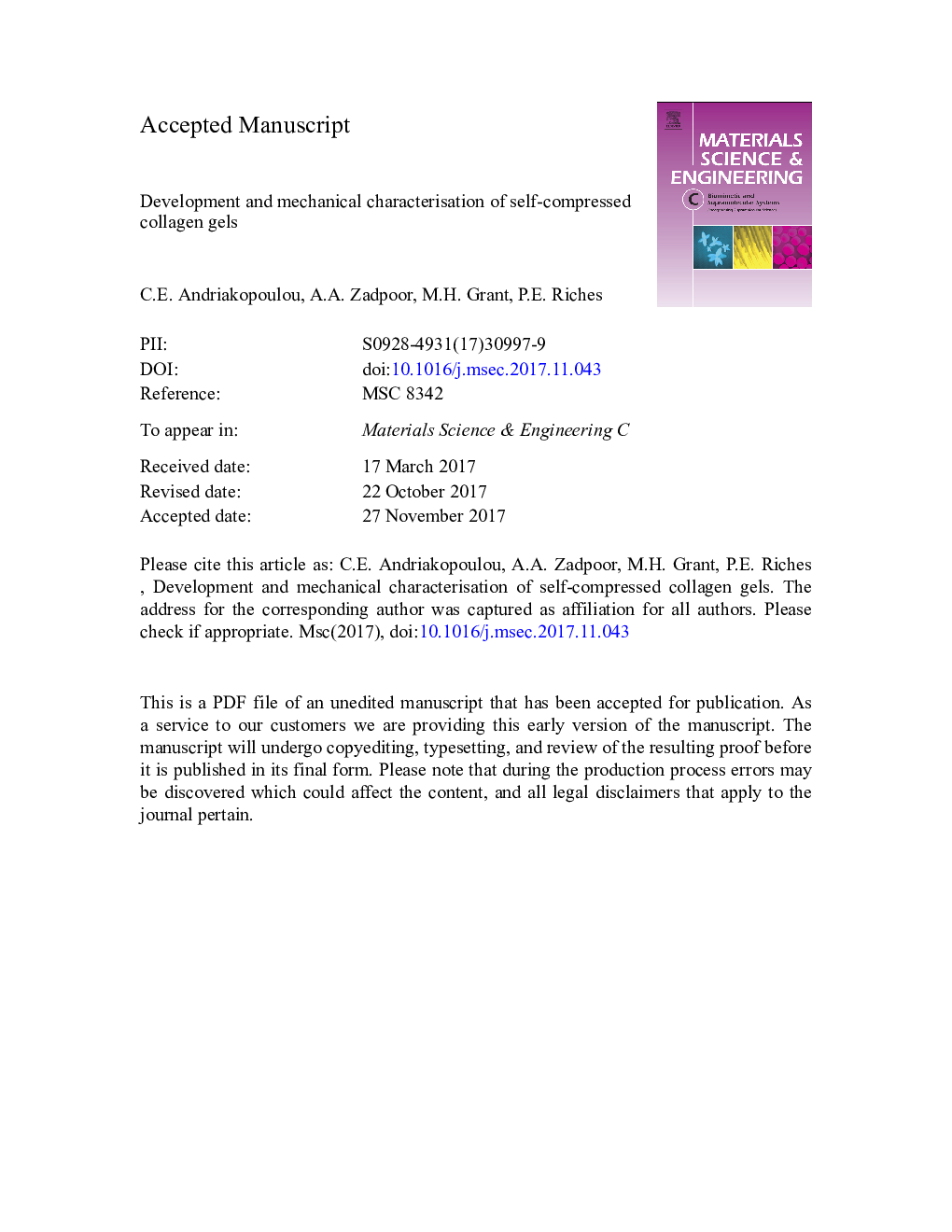| Article ID | Journal | Published Year | Pages | File Type |
|---|---|---|---|---|
| 7866728 | Materials Science and Engineering: C | 2018 | 18 Pages |
Abstract
Collagen gels are considered a promising biomaterial for the manufacturing of tissue engineering scaffolds, however, their mechanical properties often need to be improved to enable them to provide enough mechanical support during the course of tissue regeneration process. In this paper, we present a simple self-compression technique for the improvement of the mechanical properties of collagen gels, identified by the fitting of bespoke biphasic finite element models. Radially-confined highly hydrated gels were allowed to self-compress for 18 h, expelling fluid, and which were subsequently subjected to unconfined ramp-hold compression. Gels, initially of 0.2%, 0.3% and 0.4% (w/v) collagen and 13 mm thickness, transformed to 2.9 ± 0.2%, 3.2 ± 0.3% and 3.6 ± 0.1% (w/w) collagen and 0.45 ± 0.06 mm, 0.69 ± 0.04 mm and 0.99 ± 0.07 mm thickness. Young's moduli of the compressed gels did not increase with increasing collagen fibril density, whilst zero-strain hydraulic permeability significantly decreased from 51 to 21 mm4/Ns. The work demonstrates that biphasic theory, applied to unconfined compression, is a highly appropriate paradigm to mechanically characterise concentrated collagen gels and that confined compression of highly hydrated gels should be further investigated to enhance gel mechanical performance.
Related Topics
Physical Sciences and Engineering
Materials Science
Biomaterials
Authors
C.E. Andriakopoulou, A.A. Zadpoor, M.H. Grant, P.E. Riches,
